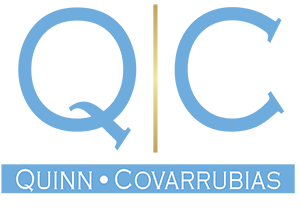Most practitioners are generally aware that interest on a judgment runs from the date of entry, and continues to accrue even pending an appeal. The accrual of interest at the standard rate of 10% per annum (7% for public entities) can be a significant consideration in evaluating the potential costs and benefits of an appeal. If you are successful in obtaining an outright reversal of the judgment, all is good: post-judgment interest goes the way of the judgment. However, if the matter is reversed and remanded for further proceedings, or reversed with directions, what happens to post-judgment interest is entirely dependent upon the “substance and effect” of the appellate court’s disposition. A disposition which effects a true reversal of the judgment will result in interest running from the date of entry of any new judgment following remand, whereas a disposition which effects only a “modification” of the original judgment leaves interest accruing from the date of the original judgment. Knowing which is which is critical, and educating the trial court prior to entry of any new judgment can save the parties the expense and delay that would be occasioned by a second appeal on this issue.
A true reversal is one which requires the trial court to conduct further fact-finding to resolve the matter at issue on appeal. However, a reversal which simply requires the trial court to reduce or increase the amount of the judgment or order to what it should have been on the date of its original entry is, in substance and effect, a modification.
The seminal case illustrating this distinction is Stockton Theatres, Inc. v. Palermo (1961) 55 cal.2d 439. There, plaintiff sought to recover costs following an appeal and the trial court disallowed the cost of a surety bond. Plaintiff appealed that order, and the appellate court reversed, holding the surety bond should be allowed if the trial court determined it was “necessary.” Further proceedings were held, after which the trial court concluded the bond was not necessary, and again denied the item of costs. Plaintiff appealed for a second time, and the appellate court held that the evidence established the necessity of the bond as a matter of law, and reversed with directions to allow the cost of the bond. Interest, however, ran only from the date the trial court found the bond to be “unnecessary” and not from the date of the original order. “Up until this point no award of costs for this item could have been made because there had been no hearing or finding on the issue of necessity for the bond.” Once that hearing was held, however, plaintiff’s entitlement to the item of costs was set, and the trial court’s erroneous determination did not prevent interest from running on what the order should have stated as of that date.
Other examples of true reversals are reversals for insufficiency of the evidence to support the judgment, or reversals based on the trial court’s lack of authority to award damages at the time the award was made.
Even though the basic principles governing post-judgment interest have been around for a long time, the trial courts can still get it wrong. The most recent example is found in Chodos v. Borman (2015) 190 Cal.Rptr.3d 889, where the appellate court held the trial court erroneously applied a multiplier to an attorney’s fee award and reversed the judgment with directions to enter a new lodestar amount. The award was reduced from $7.8 million to about $1.7 million. In spite of what appears to have been a fairly straightforward modification rather than a true reversal, the trial court did not allow post-judgment interest from the date of the original judgment. Not surprisingly, on a second appeal, the appellate court held this was error.
Given the practical effect of the accumulation of interest on a judgment, practitioners and trial courts alike need to take particular care in analyzing the substance and effect of any “reversal” on appeal and how that bears on the date from which post-judgment interest will run. As a general rule, if the reversal does not impact on the party’s entitlement to the award at issue, but only on the amount, then interest will run from the date of the original judgment.




